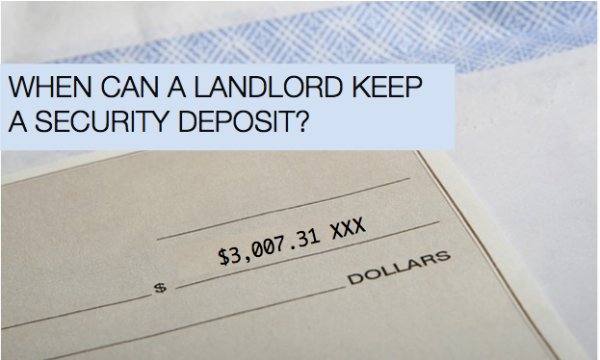

Updated on September 8, 2017
Many of us have been renters at one point in our adult lives, so most of us are familiar with security deposits. A security deposit is there to protect the landlord for the risk they undertake in allowing what is usually a relative stranger to take possession of their property. If all goes well, the tenant should receive the entire security deposit back when they move out of the landlord’s property. In fact, if you are a tenant about to sign a residential lease, keep in mind that it is against the law for the landlord to charge you a “nonrefundable” deposit!
But when is a landlord entitled to keep a security deposit? While residential security deposits cannot be nonrefundable, they are usually forfeitable, meaning the landlord is entitled to keep the security deposit if the tenant breaches the lease agreement. However, the landlord can only keep as much of the security deposit as is necessary to repair the tenant’s breach; so, for example, if the tenant pays a $800 deposit but then causes $500 in damage to the property, the tenant is still entitled to the remaining $300 of their security deposit. A good rental agreement should set out in detail the purpose for the deposit and what it may be used as security for; i.e., payment of rent, cleaning of the premises, or repair of damages.
If a landlord intends to deduct any amounts from their tenant’s deposit before returning it, keep in mind that the landlord is required to provide an itemized statement setting out the amount of the original deposit, an explanation of any deductions, and the net amount due to the tenant. This statement, along with the remaining deposit, must be returned to the tenant no later than 3 weeks after the tenant vacates the premises.